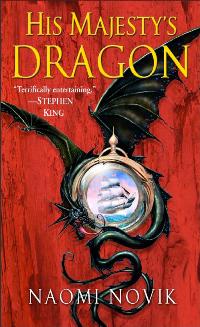 Oh, gosh! I’ve been reading Naomi Novik’s Temeraire books. My buddy (and dread Goblin Queen) Jessica Wick has been telling me I should read them for ages. And then the most fair and perilous Patty Templeton chimed in. And then my cool co-worker Janelle “I’m totally surviving the Zombie Apocalypse” McHugh started harping about them too, and I finally got a clue.
Oh, gosh! I’ve been reading Naomi Novik’s Temeraire books. My buddy (and dread Goblin Queen) Jessica Wick has been telling me I should read them for ages. And then the most fair and perilous Patty Templeton chimed in. And then my cool co-worker Janelle “I’m totally surviving the Zombie Apocalypse” McHugh started harping about them too, and I finally got a clue.
So I was all like, “FINE! I will read your 19th Century Dragons-as-Aerial-Calvalry in the year ‘O6 book, and I will see if it’s REALLY as good as all y’all are saying it is.”
Oh, it is. It is. Sea battles! Sea Serpents! Terrible storms! Travels to China! To Prussia! Blockades! Border patrols! Abolitionists and Assassins and fire-breathing Kazilik dragons, oh my!
I ordered His Majesty’s Dragon through Amazon.com and then I sort of ate it. And then I wheedled Patty (who works at a library to which I have no card) into checking out the next three books (Throne of Jade, Black Powder War and Empire of Ivory) for me (the latter of which I’m currently on). Last week, in anticipation of running out, I batted my not terribly impressive eyelashes at Janelle (who happened to be going to the library that day) and asked if she might, just might, be willing to check out Victory of Eagles for me.
In the meantime, I ordered them all for our bookstore, so that I can hand-sell them to unsuspecting customers in search of something bright and new and rambunctiously scrumptious in Fantasy. They’re sitting on my Employee Recommendation Shelf, right beside James Enge’s The Wolf Age, Terry Pratchett’s Nation, and Robin McKinley’s Sunshine. So they’re in good company!
Now, I’ve actually read (and watched) Patrick O’Brian’s Master and Commander, and also I love Susanna Clarke’s work, so I knew whereof Stephen King spoke when he wrote:
“Is it hard to imagine a cross between Susanna Clarke, of Norrell and Strange fame, and the late Patrick O’Brian? Not if you’ve read this wonderful, arresting novel.”
Only, see, I liked these books even better than Master and Commander, coz there were actually WOMEN in the pages. Female dragons as well as pilots — and boy, does that disturb our doughty protagonist Will Laurence! Before he got accidentally bonded to his Imperial Dragon Temeraire, he was just your ordinary, average (awesome) naval captain, with all that being British, a guy, and a naval captain in the 19th century implies. His time with the Aerial Corps, but most especially with Temeraire, works on him, until by the fourth book in, Laurence thinks and acts in ways that surprise even himself. It’s wonderful!
But really. I’m not here to write an in-depth review. I’m just here to alert you. You can be stubborn like me and wait a year or three before taking my advice and reading these books. YOUR LOSS THOUGH!
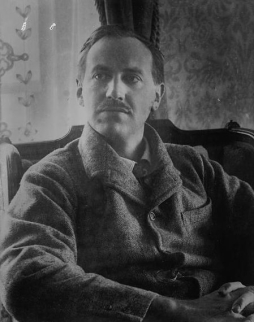 Lord Dunsany’s short story “The Fortress Unvanquishable, Save for Sacnoth” has been called the first sword-and-sorcery story ever written. That attribution has been contested elsewhere, though. I don’t particularly intend to grapple with the question — it seems to me that genres are defined by conventions, which is to say by expectations held by a reader; whether a story fits a genre therefore depends on whether the conventions it uses are the ones that the individual reader expects, and while many stories use conventions in such standard ways that there’s broad agreement about sort of tale they are, some, like ‘Sacnoth,’ will vary in definition from person to person. But as a story, I think “Sacnoth” is worth discussing. Like most of Dunsany’s early short stories, it’s really quite brilliant.
Lord Dunsany’s short story “The Fortress Unvanquishable, Save for Sacnoth” has been called the first sword-and-sorcery story ever written. That attribution has been contested elsewhere, though. I don’t particularly intend to grapple with the question — it seems to me that genres are defined by conventions, which is to say by expectations held by a reader; whether a story fits a genre therefore depends on whether the conventions it uses are the ones that the individual reader expects, and while many stories use conventions in such standard ways that there’s broad agreement about sort of tale they are, some, like ‘Sacnoth,’ will vary in definition from person to person. But as a story, I think “Sacnoth” is worth discussing. Like most of Dunsany’s early short stories, it’s really quite brilliant.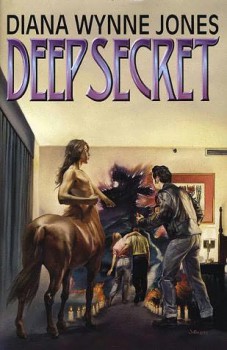
 I’m pleased to interview my great friend and writer buddy, Brad Beaulieu. We’ll be discussing his new novel, The Winds of Khalakovo, Book One of The Lays of Anuskaya, which comes out the first of April 2011 from Nightshade Books as a trade paperback and as an eBook. Winds is a sweeping epic fantasy with a Czarist Russian and Persian feel, a unique combination to be sure. I’m so proud of Brad’s accomplishment with the world building and the story. I’ve been involved with this novel for several years now, and have had a part in the revisions, so I’ve seen it go from an awesome book with an amazing concept to a truly exceptional one with a fully fleshed-out world.
I’m pleased to interview my great friend and writer buddy, Brad Beaulieu. We’ll be discussing his new novel, The Winds of Khalakovo, Book One of The Lays of Anuskaya, which comes out the first of April 2011 from Nightshade Books as a trade paperback and as an eBook. Winds is a sweeping epic fantasy with a Czarist Russian and Persian feel, a unique combination to be sure. I’m so proud of Brad’s accomplishment with the world building and the story. I’ve been involved with this novel for several years now, and have had a part in the revisions, so I’ve seen it go from an awesome book with an amazing concept to a truly exceptional one with a fully fleshed-out world. Howard Andrew Jones’ four-part story “The Walkers from the Crypt” has now been posted in its entirety at The Pathfinder Tales site at Paizo.com:
Howard Andrew Jones’ four-part story “The Walkers from the Crypt” has now been posted in its entirety at The Pathfinder Tales site at Paizo.com: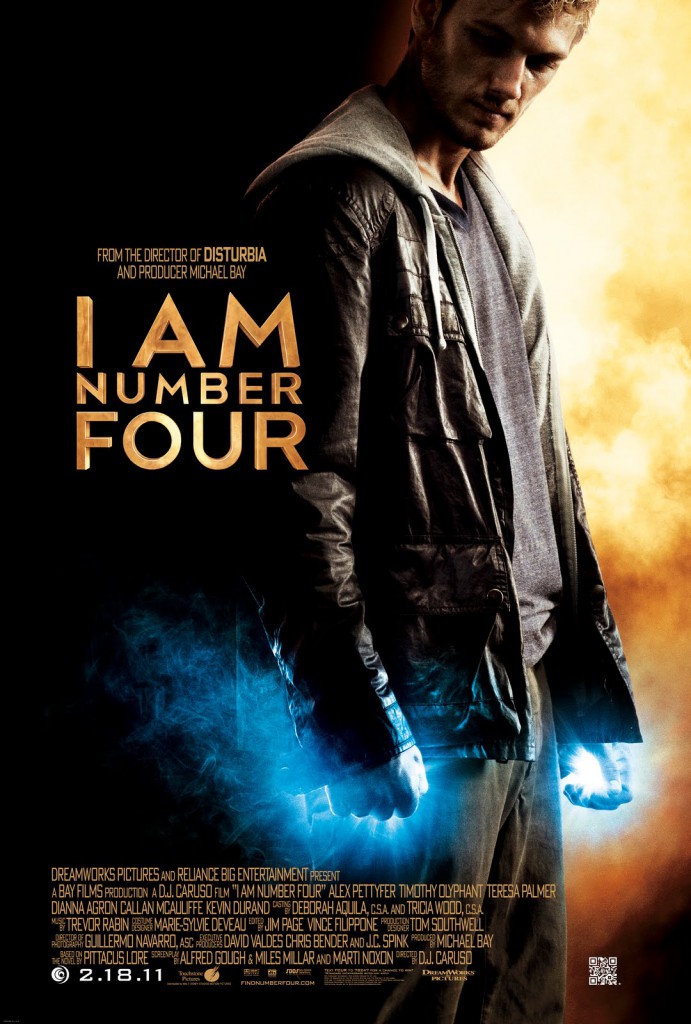 I am in my mid-thirties and my wife is in her mid-twenties. The eight-year difference between us can be jarring at times, especially because I am a pop culture junkie and she grew up without cable television (and rarely watched the network television she did have access to, as I learned when I discovered she’d never seen an episode of The Dukes of Hazzard, even in rerun).
I am in my mid-thirties and my wife is in her mid-twenties. The eight-year difference between us can be jarring at times, especially because I am a pop culture junkie and she grew up without cable television (and rarely watched the network television she did have access to, as I learned when I discovered she’d never seen an episode of The Dukes of Hazzard, even in rerun).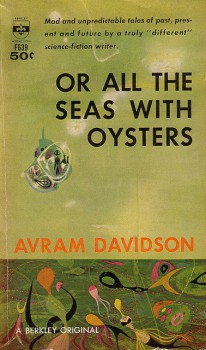
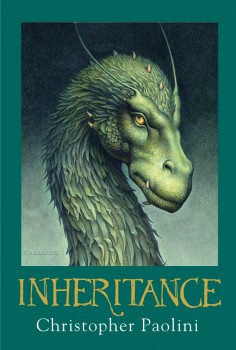
 Oh, gosh! I’ve been reading Naomi Novik’s
Oh, gosh! I’ve been reading Naomi Novik’s 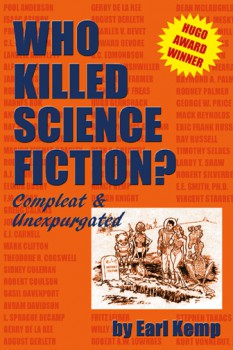
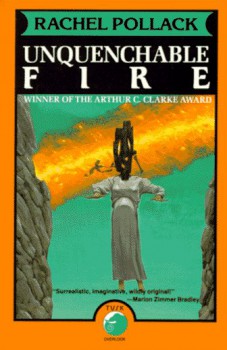 Unquenchable Fire, by Rachel Pollack
Unquenchable Fire, by Rachel Pollack